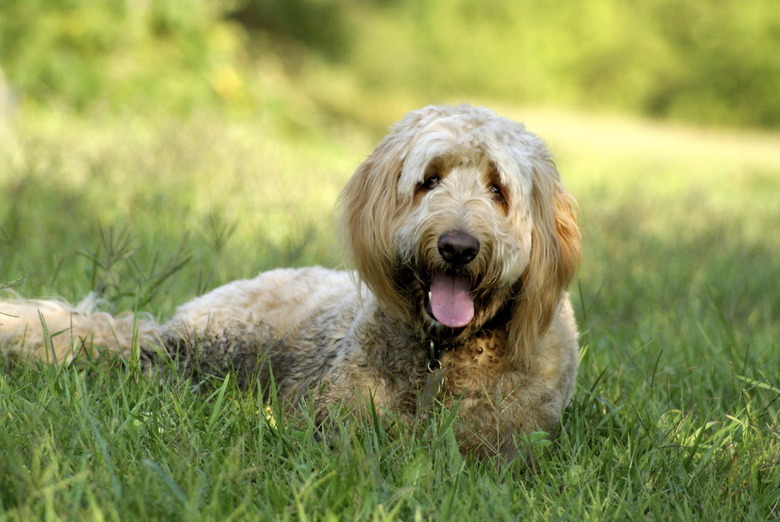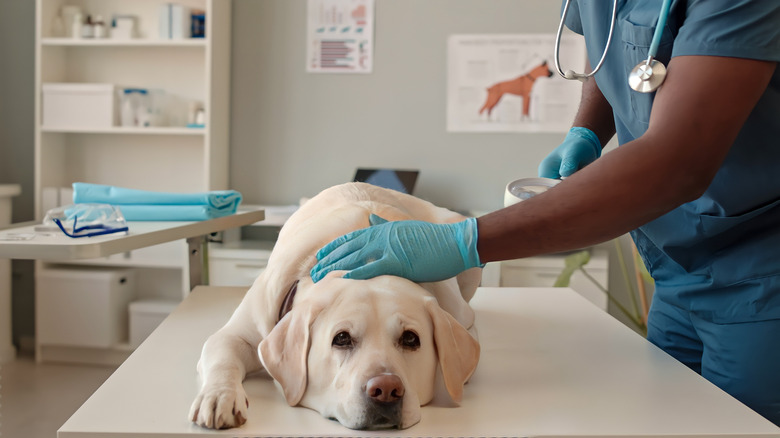Dog Shoulder Injury: Symptoms And Treatment
If your dog is limping or hesitant to put weight on one of their front legs, chances are they have a shoulder issue. Dog shoulder injuries can result from trauma or soft tissue injuries. Other factors, such as genetic conditions and osteoarthritis, can also lead to shoulder pain and instability and make a dog more prone to hurting their shoulder. As a pet parent, it can be helpful to know about orthopedic issues that might be affecting your dog, but you should always consult with your veterinarian for proper diagnostics and treatment.
Dog shoulder injury symptoms
Dog shoulder injury symptoms
Dogs suffering from a shoulder injury generally exhibit lameness in the corresponding front leg. The forelimb lameness might initially come and go, becoming progressively more pronounced, especially after any activity. Over a few months — although the amount of time varies depending on the individual animal and their pain level — the muscle mass of your dog's leg will likely decrease.
Some dogs with shoulder injuries might exhibit gait abnormalities rather than outright lameness. They might hold their leg up or appear to hop because they are trying to avoid putting weight on the affected leg. They might have trouble getting up from a lying or seated position.
What can cause a dog shoulder injury?
What can cause a dog shoulder injury?
Dog shoulder injuries can come about for a variety of reasons, including acute trauma, overuse, or chronic issues that weaken the shoulder and leave the pet more prone to injury.
Medial shoulder instability
Medial shoulder instability is among the most common shoulder injuries in performance dogs. It's similar to human rotator cuff injuries. MSI in dogs usually occurs because of joint overuse rather than actual trauma. While it's important to train your dog for competitions, overdoing such practice can eventually lead to MSI. Initial signs in canine athletes are subtle, such as unwillingness to make certain turns in agility training. Most dogs with MSI react painfully to any shoulder hyperextension. Medium-size to large breeds are most likely to suffer from MSI.
Osteochondritis dissecans (OCD) in dogs
While osteochondritis dissecans is a genetic condition and not an injury in itself, this joint disease is a leading underlying cause of shoulder issues in dogs. OCD is most common in rapidly growing, large-breed dogs and causes cartilage to separate from the bone. Symptoms include pain and swelling at the joint as well as a reluctance to bear weight on the affected limb or a recurring limp.
Supraspinatus tendinopathy in dogs
Overuse is generally the culprit behind canine supraspinatus tendinopathy. Like MSI, it is similar to a rotator cuff injury in humans. More common in dog athletes than their less active counterparts, this condition can cause front limb lameness that gets worse over time, even when the dog is restricted to minimal or moderate physical activity.
Biceps tendonitis in dogs
Biceps tendonitis can also occur with overuse and repetitive motion, but unlike the above condition, this tendon injury is more likely to affect less athletic, overweight dogs who play hard — the "weekend warriors" of the dog world. The bicipital tendon can become inflamed with vigorous activity, resulting in permanent changes that might include scar tissue. This condition often causes limping that goes from occasional to constant over time. Biceps tendonitis and osteochondritis dissecans are often concurrent issues.
Dog shoulder fracture
Shoulder fractures in dogs are relatively uncommon, but when they do happen, they are usually the result of blunt force trauma, such as a significant fall or the dog being struck by a car. Symptoms of a shoulder fracture are usually obvious and acute, like sudden limping, swelling, and severe pain. Parts of the canine shoulder that can be fractured include the scapula and the humeral head.
Dog shoulder injury diagnosis
Dog shoulder injury diagnosis
Your veterinarian or veterinary orthopedic surgeon will do a thorough physical examination of your dog, including palpation of the limbs' soft tissue to assess for pain. They might use X-rays and ultrasound to determine the cause of your dog's shoulder joint issue. To identify ligament (soft tissue) injuries, such as a biceps tendon rupture, your veterinarian might use magnetic resonance imaging (MRI). Other diagnostic tools include an arthroscope, which permits the veterinarian to view the joint and remove fluid or tissue for analysis. Most of these diagnostics require sedation. Your veterinary team will benefit from learning the history of your dog's athletic activity and any known injuries, such as slipping and falling during play.
Treating dog shoulder injuries
Treating dog shoulder injuries
Treatment options for your dog's shoulder injury depend on the severity and type of injury. Dogs with mild injuries might require rest for a prescribed period, along with medications such as non-steroidal anti-inflammatories (NSAIDS) for pain relief, and possibly long-term joint supplements. Other treatment options are physiotherapy, which can include massage and acupuncture. Physical therapy methods that work in humans work similarly in canines.
Veterinary laser therapy can be used for canines in much the same way as it is used in humans, to manage pain, inflammation, and wound healing. More severely affected dogs — especially dogs with serious shoulder fractures — might require surgery, followed by rehabilitation such as hydrotherapy. While your dog might recover sufficiently for normal activity, they might not regain their full range of motion, and canine athletes might not be able to return to a competitive career.
The bottom line
The bottom line
There is a vast array of possible causes for dog shoulder injuries, from fractures to overuse. Whatever the reason, lameness is the number one symptom. Your veterinarian can help determine the cause using diagnostic tools such as X-ray and arthroscopy. Treatment depends on the cause and can range from something as simple as anti-inflammatory medication to major orthopedic surgery. Call your DVM immediately if you suspect your dog might have a shoulder injury.


